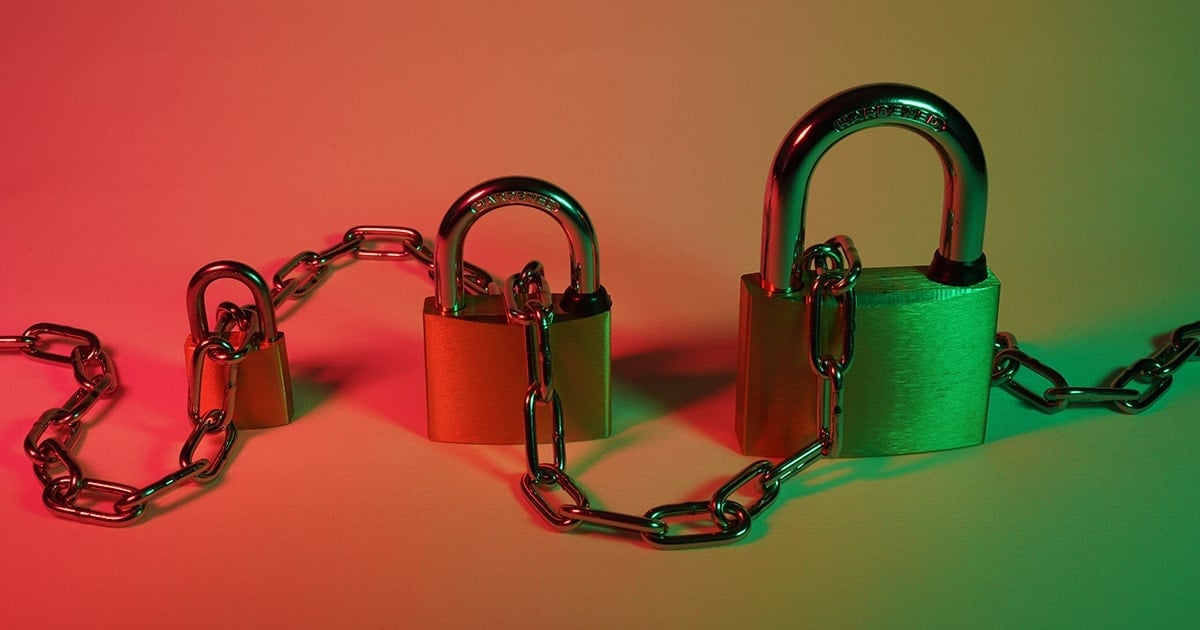
PHOTO CREDIT: Unsplash
Security Check up: Is Your Crypto Safe?
Tips For Handling Security With Cryptocurrency
It is no secret that we take security very seriously here at CloudCoin. If you are new to cryptocurrency or feeling particularly uncertain about your trading habits, here are some tips for protecting yourself while trading online.
Always move your crypto from devices that need servicing
Does it seem like the battery on your computer isn’t lasting as long as you like? Has your PC seemed a little warmer than usual? Consider moving your crypto from devices that may have trouble on the way. You don’t need the most powerful computer to trade. You need a computer that functions properly. Consider the implications of getting your computer serviced with someone who will have full access to your files.
Never auto-generate or save crypto-related passwords
What if that PC gets the “blue screen of death”? What if your child decides today is the day to test the interaction between magnets and motherboards? Create strong passwords, but make sure you write them down! Although auto generating strong passwords through Google or Firefox is usually a reliable strategy for most daily online activity, it just doesn’t cut it if you are taking cryptocurrency seriously. Experts encourage using a strong password; but saving these passwords to your PC is a huge risk.
Turn off auto updates, but consistently check for updates manually
This tip is important to remember, because it is easy to use the automation of computers as a crutch. We don’t want to think about updates since they are so frequent, but a botched upgrade to your operating system can be really easy for hackers to exploit.
Let’s say your Windows 10 automatically updated last week and you traded cryptocurrency without any interference on that current version of Windows. If your Windows has a system update this week that has an unknown vulnerability, your crypto can be at risk to nefarious entities (hackers, jealous friends, etc.) on the internet that want to exploit that vulnerability. The most responsible approach to software updates is to check daily–but disable automatic updates.
Use 2FA
For Facebook, Amazon, Twitch or any online platform that offers it, use a 2 factor authentication (2FA) to increase security. 2FA guarantees that no one is using your identity unless they have your phone.
While you’re at it, you might want to change your phone lock screen numbers from “1111” to some other 4-digit code. You don’t want your phone to have your fingerprints saved to, it but neither does that shadowy figure in the alley that is wearing sunglasses at night. Use 2FA or consider yourself easy pickings for cyber ninjas.
Never use public Wi-Fi
Plenty of professionals that work in the sphere of technology or communications have a favorite bakery or coffee shop where they like to hang out. While setting can make all the difference, you need to make sure you are exchanging cryptocurrency on a secure network. For now, try to keep your crypto currency activities tied to a server that you can trust.
Triple check any address where you send payment
Slow yourself down when you are about to make a transaction, so that you obsessively check that address. Be aware that there are evil programs that exist to interfere with a simple copy/paste function. Go ahead and copy the address where you are sending payment, but make sure to check, check, and re-check the address again. It is repetitive and no fun, but it could save your wallet’s life. If you want to be extra safe, don’t be afraid to send a micropayment before you send the full amount.
Store your wallet’s private keys offline
The virtual world is excellent for optimization and computing, but there is some magic left in the power of the pen. One of the safest habits you can practice in cryptocurrency is physically storing your wallet’s private keys in a safe. If you want to take it one step further, then physically store your private keys in a bank vault. There are real world solutions to cryptocurrency, too.
Avoid storing large amounts of crypto in exchanges
Don’t put all of your eggs in one basket. Play it safe and keep your large amounts of crypto in a place that you can guard, yourself. Experts warn of the risk of putting all of your money in the same place. You don’t want to put all of your gold in the same treasure trove. Cryptocurrency should be treated the same way.
Keep an up-to-date antivirus
It's up to you to decide which antivirus software is optimal, but always keep it up to date. Consider going above and beyond with a paid antivirus subscription instead of settling with a basic service. Always keep your antivirus in tip top shape.
Keep your holdings private.
The biggest mistake you can make after winning the lottery is moving into a mansion the next day: it’s like a beacon for every possible scammer. We praise cryptocurrency and CloudCoin in particular for anonymity, but boasting about your earnings is asking for trouble. Experts keep their private holdings private. Keeping your business to yourself is an investment in yourself.
The Best Tip: Consider CloudCoin
There is no better cryptocurrency than CloudCoin. It is the easiest crypto to use, and it is completely private. Unlike blockchain technology, it has no public ledger. CloudCoin is based on counterfeit detection technology called the “RAIDA” (Redundant Array of Independent Detection Agents); a cloud-based security protocol. CloudCoin verifies authenticity through a global array of servers that require only a light, easily stored authentication code, and it completes transactions in milliseconds.
Remember, CloudCoin is the only cryptocurrency that can be recovered if lost. It naturally alleviates the stress that comes with matters of internet security. CloudCoin’s focus on privacy, portability, and efficiency alleviates stresses that come with trading online.
